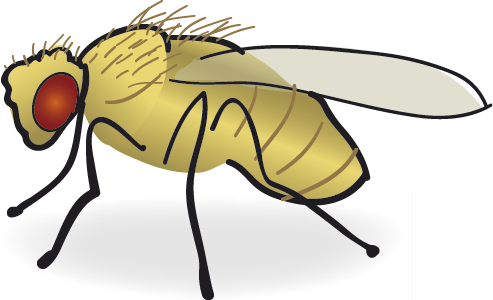Stop codon readthrough is a long-known but fairly obscure "recoding" mechanism, which wasn't believed to play a widespread role in metazoan gene expression, save for selenoproteins and a few other intriguing but isolated examples. Now we know that it actually affects hundreds of fly genes - and moreover that, in many cases, the products confer biological functions conserved throughout many millions of years of evolution.
Sunday, January 5, 2014
Ribosome profiling confirms widespread stop codon readthrough in flies
A recent eLife paper from the Weissman lab at UCSF uses high-throughput ribosome profiling to show that many Drosophila melanogaster (fruitfly) genes undergo an unusual translation process called stop codon readthrough - confirming many of, and expanding on, our earlier predictions based on computational comparative genomics. Stop codon readthrough occurs when a translating ribosome reaches an in-frame stop codon in an mRNA but, instead of terminating as usual, continues on with translation - as if the stop codon were a sense codon. This gives rise to a protein isoform with an extended C-terminal region, potentially modifying its function or localization.
Stop codon readthrough is a long-known but fairly obscure "recoding" mechanism, which wasn't believed to play a widespread role in metazoan gene expression, save for selenoproteins and a few other intriguing but isolated examples. Now we know that it actually affects hundreds of fly genes - and moreover that, in many cases, the products confer biological functions conserved throughout many millions of years of evolution.
Stop codon readthrough is a long-known but fairly obscure "recoding" mechanism, which wasn't believed to play a widespread role in metazoan gene expression, save for selenoproteins and a few other intriguing but isolated examples. Now we know that it actually affects hundreds of fly genes - and moreover that, in many cases, the products confer biological functions conserved throughout many millions of years of evolution.
Subscribe to:
Posts (Atom)
